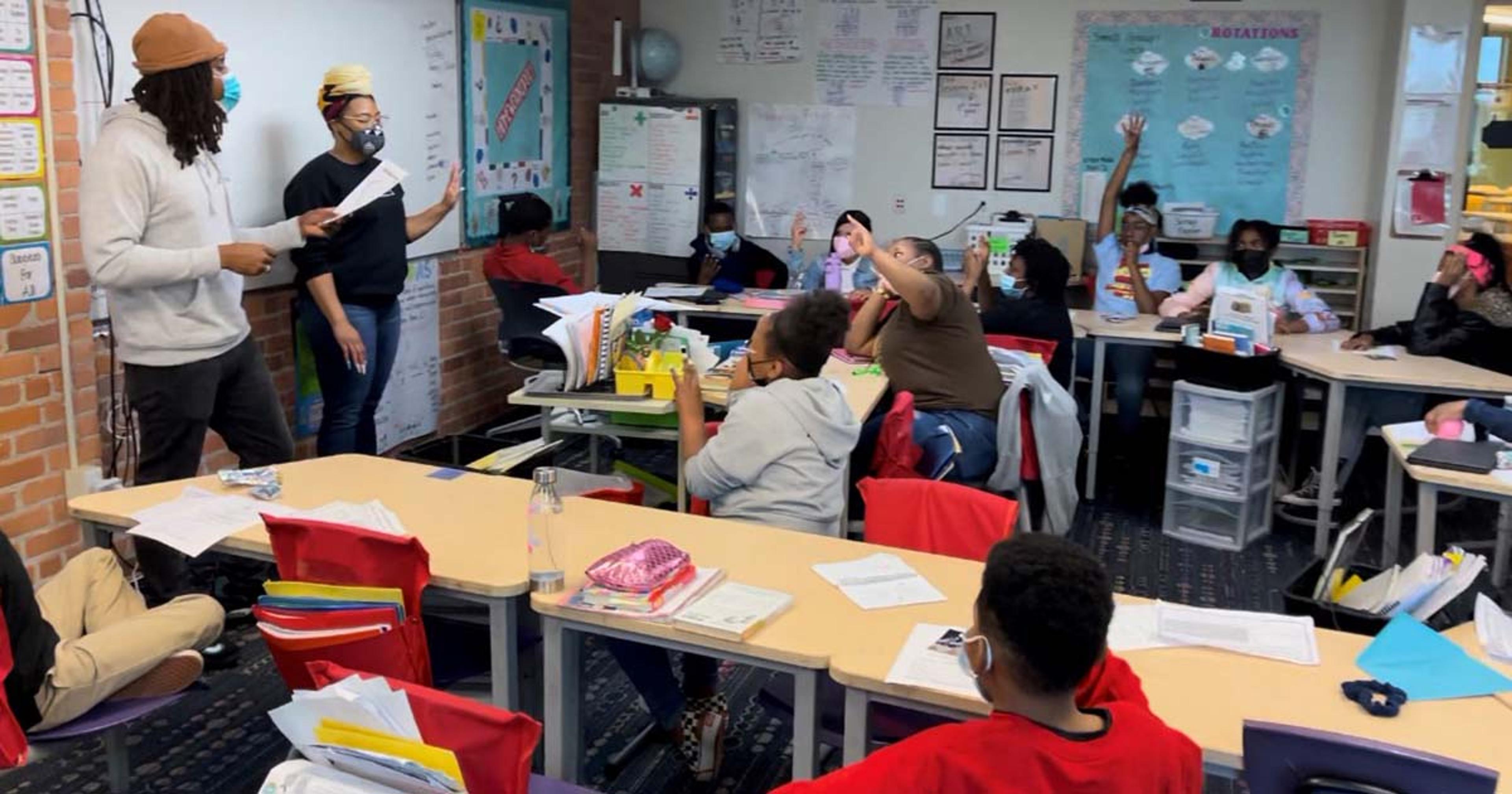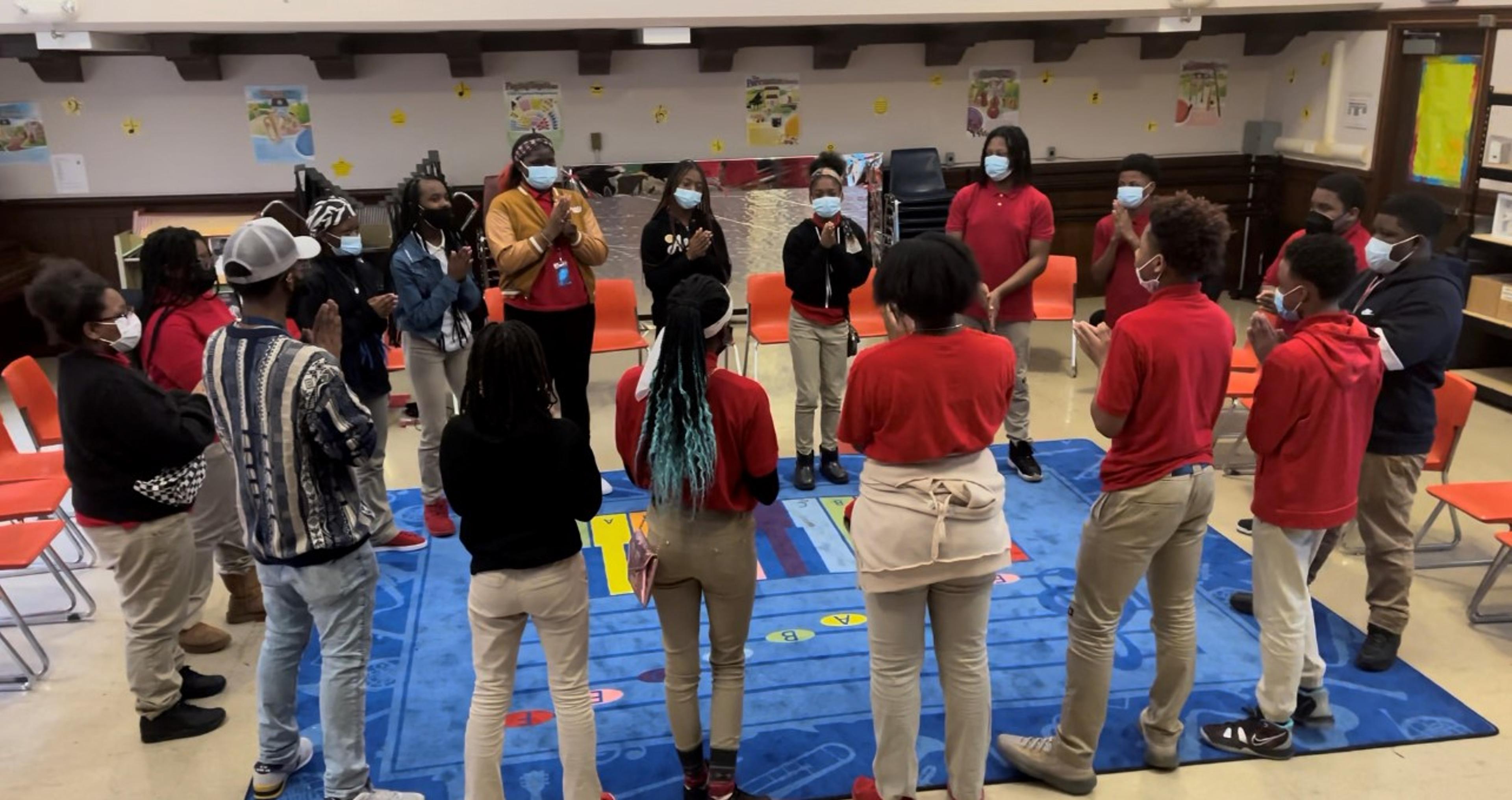Blue Cross and Partners Target Funding to Black-Led Organizations to Improve Access to Mental Health Care
Amy Barczy
| 5 min read
Amy Barczy is a former brand journalist who authored...

Black communities in Detroit are facing increasing rates of anxiety and depression – yet have disproportionately fewer ways to access mental health care and services due to racial and ethnic disparities driven by social determinants of health.
A group of eight philanthropic partners in the city are seeking to make a difference by targeting funding to Black-led community-based organizations through an innovative pilot program. The collaborative includes Blue Cross Blue Shield of Michigan, Blue Cross Blue Shield of Michigan Foundation, the Community Foundation for Southeast Michigan, the Ethel and James Flinn Foundation, The Jewish Fund, The Kresge Foundation and the Michigan Health Endowment Fund. Planning partners also include the Metro Health Foundation.
“This collaborative group of funding partners is committed to addressing racial disparities in access to behavioral health care,” said Ken Hayward, vice president and special assistant to the president for Community Relations at Blue Cross. “Our goal through this program is to help these seven organizations build bridges to safety net and mental health care providers to improve access to mental health care for the people they serve.”
This pilot program is targeting funding to seven Detroit-based, Black-led, community-based organizations: Big Brothers Big Sisters of Metropolitan Detroit, Cody Rouge Community Action Alliance, Detroit Association of Black Organizations, Hannan Center, SASHA Center, TeenHYPE Youth Development Program and The Yunion, Inc.
“Michigan has a strong network of Black-led community-based organizations that provide essential social services to individuals and families,” said Audrey Harvey, executive director and CEO of the BCBSM Foundation. “We’re providing resources to help them expand access to mental health care in ways that will be most impactful to the people they serve.”
Helping those in crisis
The grants help each community organization better connect their client and member populations to mental health resources through mechanisms like referrals to primary care clinics, building their own clinics, case managers or other innovative solutions.
The need for help has never been greater, as the social isolation and disruption of the pandemic has magnified existing mental health problems – especially for the Black communities in Detroit that these organizations service.
“In our middle and high school target populations, all are experiencing unprecedented incidents of mental health related episodes,” said Nicole Wilson, CEO of The Yunion, Inc. “It’s literally a crisis right now.”

The Yunion is a Black-led nonprofit on Detroit’s west side that serves about 1,000 children in the Detroit school district and charter school system, as well as the immediate outlying areas. Most of the youth the Yunion serves are growing up with systemic societal inequities stacked against them: many are eligible for free and reduced lunch, many have experienced trauma and violence, some may be lacking basic needs like reliable housing, transportation and food, in addition to other social determinants of health.
“Our school partners are scrambling. They are reaching out to us now more than ever with services related to trauma-informed approaches,” Wilson said. “Our students are having high anxiety and experiencing suicidal ideation – in third, fourth and fifth grades; in addition to our middle and high school-age students.”
Wilson said the grant is helping the Yunion to support students at highest risk of interacting with the juvenile justice system with individualized case management to build them a care plan that could include tutoring support, counseling, housing, transportation and clinical mental health if needed.
Building trust to overcome stigma
The ability of community-based organizations to build trust in their relationship with their members is an important step to overcoming any stigmas or reservations members may have about seeking help.
“There’s a familiarity when you’re talking about having services offered by people to people that they’re in the same community with,” said Melissa Draughn, director of social work at the Hannan Center. “I think there’s always that level of trust that comes from people of the same culture.”
The Hannan Center serves senior adults in southeast Michigan with classes and workshops, day programming for individuals with dementia and social work, including case management and mental health. They are using the grant to connect senior LGBTQIA+ adults to mental and physical health care services – who are facing severe effects of social isolation. For these members in particular, there are significant hurdles to overcome to get help.
“There is a history of mistrust between marginalized communities, including African Americans, and the health care system, as well as an overall stigma with mental health,” Draughn said. “It’s important to be serviced by those that understand the history behind the mistrust and understand concepts like ‘found family’ and why you may be selective in what you disclose to your health care provider and why that could be dangerous. It would be easier to receive those services from somebody who has a better understanding of where that comes from in the first place.”
Investing in Black community organizations
With improved access to health care providers, Black-led community-based organizations are in a unique position to improve access to critical health care services including primary care and behavioral health treatment.
“This approach is extremely important. We are so appreciative of this cohort of funders taking an equitable approach,” Wilson said. “When you combine the inequity of funding for Black-led nonprofits that are rooted in the communities they serve, layered on top of inequities in the community when it comes to social determinants of health, in order to even start to attempt to balance and make a difference – you have to pour funding into both.”
Collaborative philanthropy is an effective way to address significant community health issues. For more information, read more here.
Photo credit: Courtesy of The Yunion





